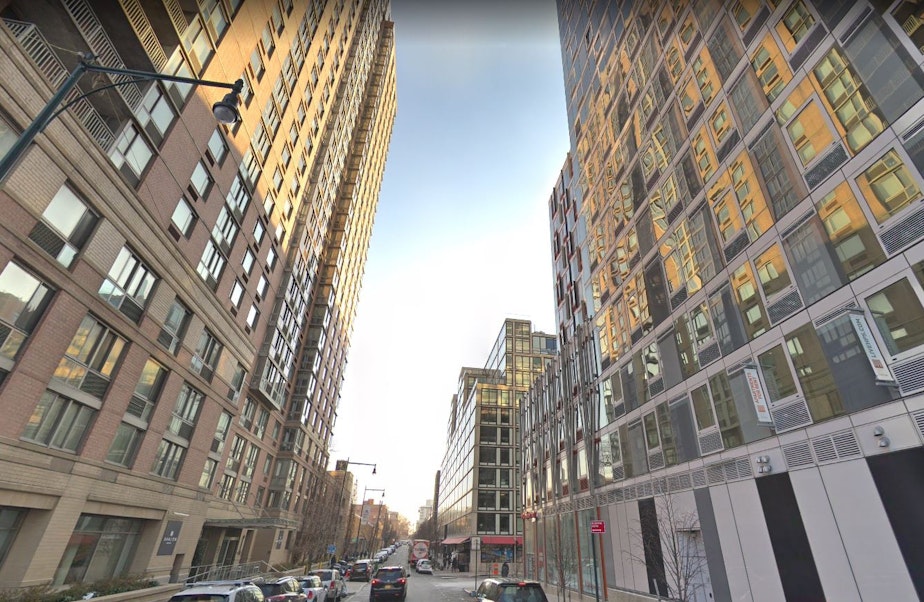Now that it's over, what was Amazon's HQ2 search really about?

KUOW's Angela King talks with Richard Florida of the University of Toronto's School of Cities about the lessons of Amazon's HQ2 search.
You've said the the HQ2 search wasn't really about finding a second headquarters at all. What do you mean?
I've thought from the get-go that Amazon had a good sense of where it wanted to go. I've always thought that this was about crowd-sourcing information for siting a whole lot of different things. The headquarters goes to New York, there's a tech unit in D.C., there'll be a logistics facility in Nashville. Who knows, an R&D hub in Pittsburgh or Austin, a Latin American headquarters in Miami.
So I think that finalist list looks to me like a list of 20 places Amazon wants to put different kinds of things. And they did it all in one fell swoop. They crowd-sourced this information on labor pools, on talent, on incentives, on transport and airports. Got this for free on the taxpayer dole. And now Amazon can pick and choose and then go back to these communities say, "Hey, wait a second we'd like to come to you for a distribution facility or an R&D center. What about those incentives you promised to us?"
Do you think we'll see this again, where a company comes in and gets all this information about the cities they're taking a look at?
I think the honeymoon is over. If the honeymoon continued, I think we'd see a lot more of this. We'd see other big companies replicating this so-called best practice as we call it in business school. But look, the honeymoon is over. Amazon picked two great cities, two of the most vital media markets in the world, with large papers, great reporters, great media and large activist communities. Now comes the real issue. We're already seeing a brutal backlash to this in the local press and in the national media, even in the international media. So I think at the end of the day this may end up being bad for Amazon's brand. And Amazon's a consumer company. I'm a Prime customer. I actually like Amazon as a consumer. I think they serve me very well in getting me things I need, but as a human being when I look around and look at this process that doesn't look very nice, they're taking almost three billion in taxpayer money from these three cities.
Here's what I hope: I hope Amazon learned its lesson. I hope Amazon turns around and says "We'd like to be a partner in our new communities and a better partner back home in our original hometown of Seattle. We don't want these incentives. We're gonna be a good local citizen and do what we can for our towns."
Is this the end of the Seattle chapter of the Amazon story?
I don't know. A number of people I know who are smart urbanists said from the get-go Amazon was always going to keep the crown jewels in Seattle. And I think there's a certain truth to that. I think what New York gives Amazon is a window on the kinds of global management, financial high-level headquarters executives that maybe didn't want to leave the East Coast. I'm not trying to denigrate Seattle but maybe these are the kind of people that feel more at home in New York or London. And I think Amazon in its ambition needed to get access to that kind of talent so that's what I think New York's about. I think D.C. is about the cloud, it's about the DOD. It's about being close to the seat of power. The Washington Post is there.
I actually think all of this works together as a suite. I think these three locations, these three power centers actually work together not against one another.




